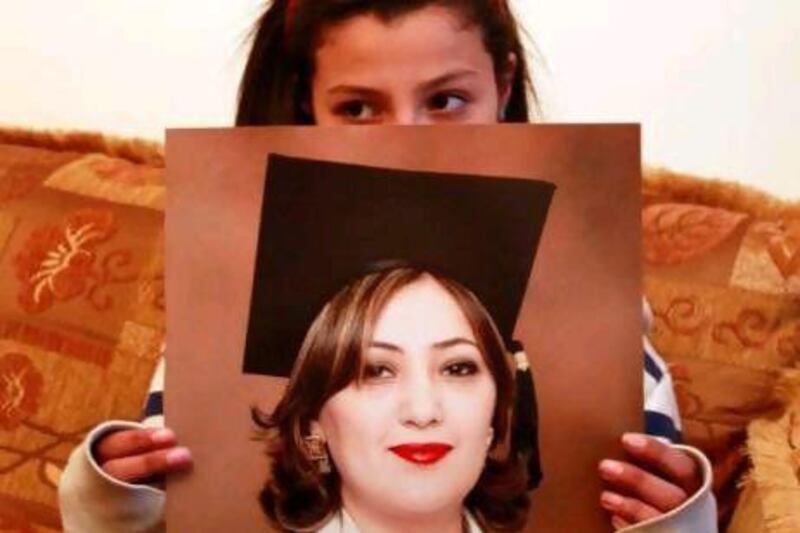RAMALLAH // The Palestinian Authority is endangering free speech with the latest arrest and detention of government critics and reporters, say Palestinian journalists and human-rights workers.
Two Palestinians have been arrested and two others detained in a little more than a week for either publishing articles critical of the West Bank government or posting unfavourable remarks on Facebook about its leader, the Palestinian Authority (PA) president, Mahmoud Abbas.
The arrests come as public frustration with the PA mounts. Neither Mr Abbas's bid to win United Nations recognition for a Palestinian state nor his attempts to resume peace talks with Israel have borne fruit, even though Jewish settlements, built on expropriated Palestinian land, continue to grow.
"There is real concern here that the atmosphere is becoming far more difficult, and that the PA is becoming more sensitive and trying to control every single word coming out of people's mouths," said Shawan Jabarin, director of Al Haq, a Ramallah-based human-rights organisation.
"It's creating an atmosphere of fear, of self-censorship."
Last week, PA security forces arrested a former lecturer at Al Quds University in Jerusalem, Ismat Abdul-Khaleq, 39, a single mother of two, for comments about Mr Abbas posted on her Facebook page.
She was ordered detained without charge for two weeks while the public prosecutor investigated allegations that Ms Abdul-Khalek called the Palestinian leader a "traitor" and recommended that the PA be dissolved.
Security forces last week also arrested Yousef Al Shayeb, who angered officials in January with an article he wrote in a Jordanian newspaper about corruption at the PA's diplomatic mission in France. He, too, was ordered detained without charge for 15 days during an investigation into his corruption claims that also implicated the PA foreign minister, Riyad Malki.
On Monday, a court ordered Mr Shayeb free on US$8,000 (Dh29,385) bail.
The New York-based Human Rights Watch yesterday called on the PA not to criminally charge Mr Shayeb, who told his lawyer that Palestinian investigators had tried to pressure him to reveal the sources of his article.
Two other journalists were also interrogated by the PA last week for Facebook comments and media reports.
Defaming public officials is a crime under PA law and its public prosecutor, Ahmed Al Mughani, in an interview with the Associated Press, defended the arrests.
"These expressions go beyond freedom of expression," he said.
Reporters Without Borders ranked the occupied Palestinian territories worse than Afghanistan, Iraq and the Democratic Republic of Congo in its last press freedom index, at 153 out of 179 countries on the list.
But attacks on Palestinian free speech and press freedoms are usually associated with Israel and Hamas, that control the Gaza Strip.
The recent detentions by the PA have caused particular alarm among Palestinian rights groups and journalists, who have demonstrated against them. The Palestinian Journalists Syndicate organised a sit-in last week after its members were not allowed to visit Mr Shayeb while he was in detention.
Hisham Sharabati, a freelance journalist from the West Bank city of Hebron, said the PA has increasingly harassed Palestinian journalists.
"Journalists are getting intimidating calls from the security forces, and they're being investigated these days," he said, which created a climate of "fear".
He and others blamed the PA penal could that allows defamation suspects to be held in detention for up to six months before charging them with a crime.
The code was introduced in the 1960 by the government of Jordan, which ruled the West Bank and East Jerusalem until Israel captured the territories during the 1967 Arab-Israeli war.
But even though the cabinet proposed amending the penal code last year, Mr Abbas has not signed it into law.
Mr Sharabati said its harsh punishment for defamation suspects was originally meant to shield the Jordanian king from criticism.
"And the Palestinian Authority has tried to use the same law to protect its leader," he said, "but we don't have a king in the Palestinian Authority."
hnaylor@thenational.ae





